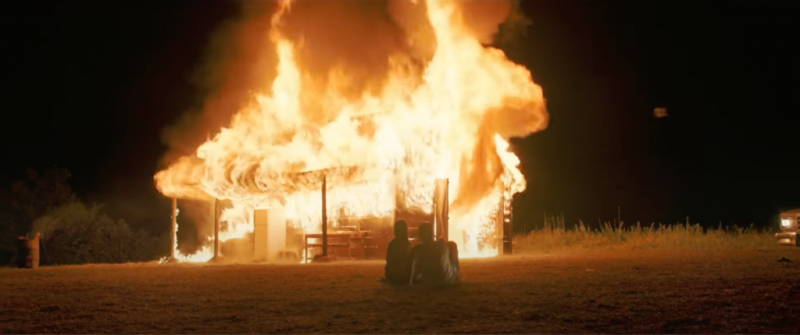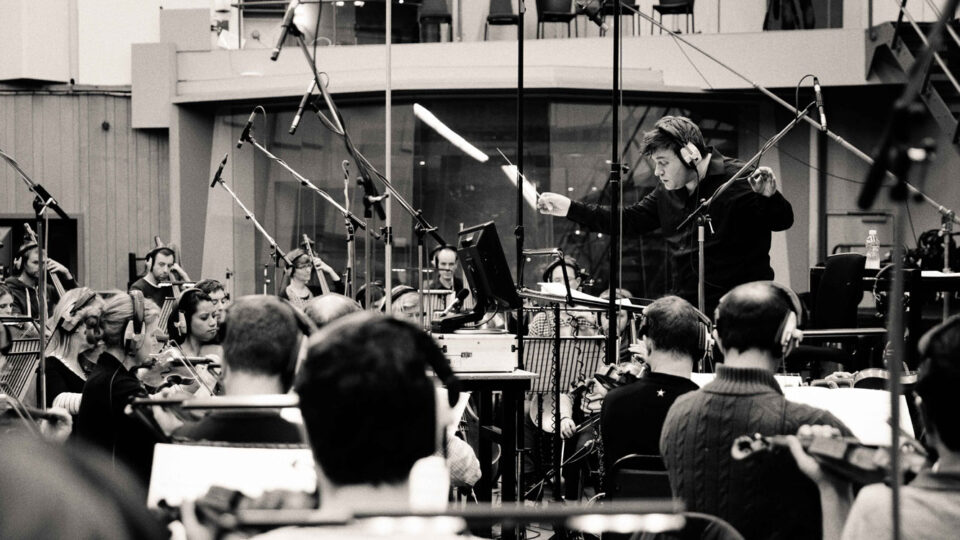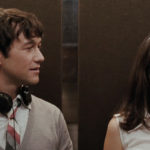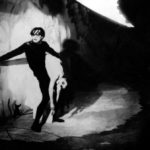During the pandemic, I felt like I unlocked a new realm of sound. While I frequently listen to artists, bands, and the like, I stumbled upon a plethora of composers who were responsible for making the scores and soundtracks for some of my favorite films of all time. Beforehand, I hadn’t really paid much attention to the musical aspect of cinema. Even though I love both music and film, I’ve always perceived them as two separate entities, never to really coexist or coincide in practice and in theory. Then, I came to the realization that both art forms have more simultaneous connections than one could predict or expect. This synchronicity, being a marriage that ties what one can see to what one can hear.
Both mediums are very complimentary of each other. Music serves as an aid to amplifying visuals, while visuals function to apply music with more expressive, evocative, and poignant character. The two combined create an entirely sensual experience that leaves the viewer with ardently vivid demonstrations of emotion and thought. In my opinion, the perfect scene comprises of a shot with passionate narrative and equally moving and stirring musical themes and elements.
Music is not only a background component of the scene, but it also operates as the instinctive guide that leads the audience in terms of flow and motion within the storyline. The musical feature is essentially what dictates and determines what following events will unravel. In a way, it allows us to be aware and conscious in advance of what is about to unfold. It’s a foreboding kind of warning or prediction that allows the audience to know the direction that the film is about to take, long before it moves that way.
I’d like to think of it as composers centering and revolving the music around plots, where the music is able to convey the story on its own through the sound’s embodied atmosphere and ambience. Why I think film scores and soundtracks are so especially important is because we fail to recognize its merit for its role in the translating of sentiment and intensity. Music after all is a universal language.
The first movie soundtrack that I had really enjoyed, so much so that I had even purchased a copy of it on vinyl, was Nicholas Brittel’s orchestration for the Barry Jenkins film If Beale Street Could Talk (2018). There was one track in the album named “Agape”, which plays during a scene in where Tish (played by Kiki Layne) talks about the momentary instance she realized she loved Fonny (Stephan James). She says, “We were a part of each other. Flesh of each other’s flesh which we so took for granted that we never thought of the flesh. Yet, it was no surprise to me when I finally understood that he was the most beautiful person I had seen all my life.”
Tish recites this dialogue over Britell’s score, as a frame of them appears where they are in a moving subway train, staring deeply at each other’s exterior. I would listen to this specific track a lot. It even become my top song on Spotify for a while. The stunning magnificence of this album amazes and fascinates me for its capacity to be brimming with such profuse lust for life.
Soon after, I found out about Emile Mosseri, who had done the scores for Lee Isaac Chung’s Minari (2020) and Miranda July’s Kajillionaire (2020). As I had watched Minari during my senior year of high school for a class, I was immediately compelled to download its score after hearing the album’s outro track play over the scene of the Yi family’s farm burning down. In this dramatically touching scene, we see the Yi family lose everything they worked so hard for, signifying the collapse of their American dream. As the outro track poses itself to be tenderly delicate, the musical personality of the scene is complex and intricate in its spirit and energy.

Minari ending scene. Image via Midstory
As for the Kajillionaire score, I adore the track, “Infinite Love“. It plays in the film after Old Dolio (played by Evan Rachel Woods) and Melanie (played by Gina Rodriguez) emerge from staying in a pitch-dark room. Here, Old Dolio says in a speech, “I think it happened right away. Right after that first big noise. We died. This is just how it’s gonna be forever. Just us, in blackness. You can’t believe it because you were married to life, hooked on it. I wasn’t hooked so it’s not such a big deal to me.” After this segment, Old Dolio enters a convenience store and starts to see everything mundane and earthly as mesmerizing and captivating. A viewed perception toward reality, shifted.
I also consider myself an avid fan of Jon Brion. He is the composer for the soundtracks of Greta Gerwig’s Lady Bird (2017) and Michel Gondry’s Eternal Sunshine of a Spotless Mind (2004). The Lady Bird soundtrack holds a particularly distinctive place in my heart as this was what I had been listening to before boarding the plane for college. It’s similar to Lady Bird when the track “Leaving” plays over the scene where Lady Bird’s mother drops her off at the airport as she leaves to attend UC Davis.
In Eternal Sunshine of a Spotless Mind, the track “Theme” plays over Joel (played by Jim Carrey) waking up and going on with his daily life. He says in a voice-over, “Today is a holiday invented by greeting card companies to make people feel like crap. I ditched work today, took a train up to Montauk. I don’t know why. I’m not an impulsive person. I guess I just woke up in a funk this morning. I gotta get my car fixed.” In this monologue, he mourns the existence of Valentine’s Day. With the score still playing, Joel has his first encounter with Clementine, as she walks past him by the beach’s coast, symbolizing what would then be a tumultuous journey of trying to forget each other.
Scores and soundtracks like these persist in reminding me of how impactful and influential cinema and music have been in my life. The aforementioned composers make life all the more colorful and vibrant through the wondrous meshing of visuals and sound. Earlier this year, I delved further into the discography of Hans Zimmer, who I would argue is one of the best when it comes to the mastership of film soundtracks and scores. From this exploration, I came to the conclusion that he was right when he had claimed that “anything can be musical sound.”




